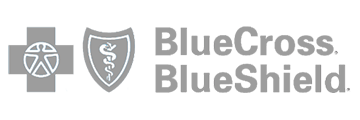Addiction
Don’t Wing It: Sobriety and Keeping Routines
Medically Reviewed By
Written By
Last medically reviewed February 6, 2025
Addiction
Medically Reviewed By
Written By
Last medically reviewed February 6, 2025
Our PHP and IOP programs in Georgia can help you bridge the gap between inpatient treatment and the real world. Our specialists will formulate a plan from our IOP programs that works for you!
As of this moment, you are probably sick of hearing about coronavirus at this point, we are too. Everyone who has been appropriately (and responsibly) following social distancing measures has been locked in for nearly two months now. Depending on where you live, lockdown could ensue for another two months—there are many things that are uncertain at this time.
One thing is a given, however. The sudden disruption to people’s everyday routines has left people suffering from the effects of complete disorganization and lack of structure in everyday life. Our typical routine of starting the day off with obligations such as attending in-person treatment, therapy, or commuting to work has been thrown off entirely.
Even when lockdown ends and normal life can resume, if you’re currently in one of our IOP Programs or living out recovery in the real world, the advice in this article will always prove useful to you.
Think about what recovery is as a whole—it’s a structured approach (or multiple approaches) to becoming and staying sober. This relies on repeated visits to meetings, therapy, and other such measures to keep you on track.
With the novel coronavirus wreaking havoc on public health and the economy as a whole, many of our typical activities are gone. Going out to meet friends and enjoying company over food is gone. Going to the park to breathe some fresh air—in most places, is gone. Certainly commuting to work is gone unless you work in an essential field such as healthcare, construction, etc.
However, many people are either out of a job or working remotely from home. This poses an entirely new problem—how do you spend your time? Sure, when you were working hard it may have seemed like unlimited free time would be great, but it’s clear that the abundance of sudden unstructured free time has left many people to their own devices.
Routines are very important not only for recovery but also for your mental health in general. The United States is primed for a mental health crisis on top of the one that we already were experiencing. Fortunately, there are many inpatient treatment and IOP programs to help facilitate structure and recovery. Now, more than ever is the time to drill the importance of the basics.
If you’re a natural night-owl, you’ve probably amassed plenty of memories of early morning tardiness and lots of guilt-tripping about not being up in the morning. Don’t defy your biology unnecessarily! What’s most important is the set a time to wake up and be consistent about it.
This allows your circadian rhythm—your body’s operating clock, to stay in tune and keep you on an even level. Having mismatches wake up times can drastically impact your mental health through a cascading series of effects on your hormones.
Cortisol and ghrelin—the hunger hormone, are typically jostled when your sleep times vary too dramatically. This is also partially why people who fly a lot are at risk for weight gain and associated issues. The frequent jetlag has a negative effect on the body.
Believe it or not, what time we eat often follows a clock too. If we are inconsistent with our mealtimes, this can have a negative effect on the rest of our routine. If you don’t take care of your dietary needs enough in the daytime, you may find yourself up at night hungry and craving a snack.
A strange thing happens when we have a lot of unstructured time. We don’t tend to automatically use it productively. In fact, think of the most productive times in your life—they were often feeding one another. What does that mean? It means when you have positive momentum, it’s much easier to get things done.
If you’ve been stuck at home like much of the country is right now, chances are you’ve been experiencing foggy-headedness, lethargy, and general lack of motivation. It’s important to get moving and keep your living space organized—and clean, for the sake of your immune health too. Just doing these small things will help you carry momentum into doing other things you need to do.
If you caught our last post, staying active was a huge focal point in keeping your mental health in check. Everyone has differing ability levels and motivation, so choose your exercise based on that. However, everyone can get up and at least do some stretches, a few pushups, a few squats, or go for a walk around the neighborhood provided you maintain an appropriate distance from neighbors.
Southeast Addiction is always here to help during difficult times. There are many people in recovery who have gone to great lengths to develop healthy routines and stay sober. However, the current public health crisis has interrupted many people’s routines and is wreaking absolute havoc on the mental health of the country.
If you or a loved one are struggling with addiction and this crisis is adding difficulties onto that pile, you are not alone. Call Southeast Addiction today at (866)-228-3129. Our PHP and IOP programs in Georgia can help you bridge the gap between inpatient treatment and the real world. Our specialists will formulate a plan from our IOP programs that works for you!






